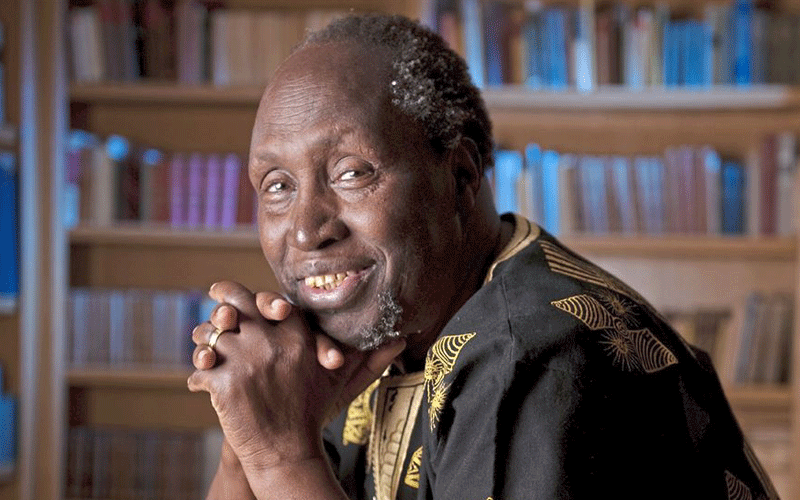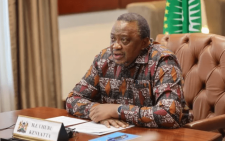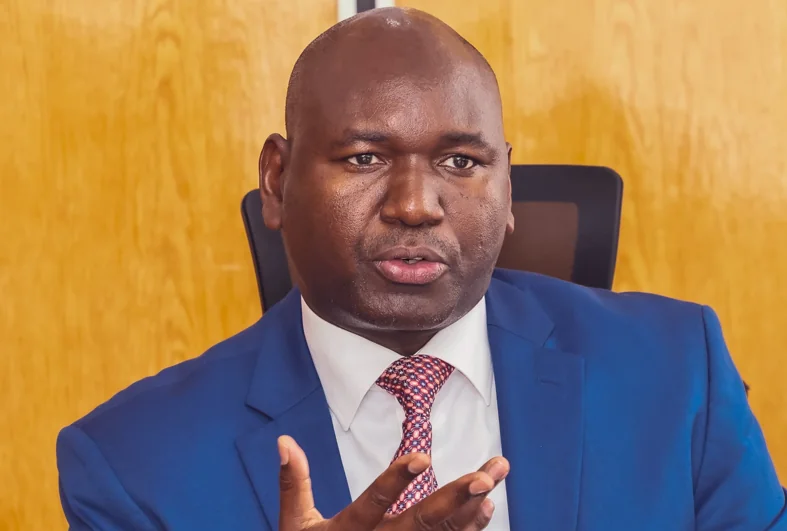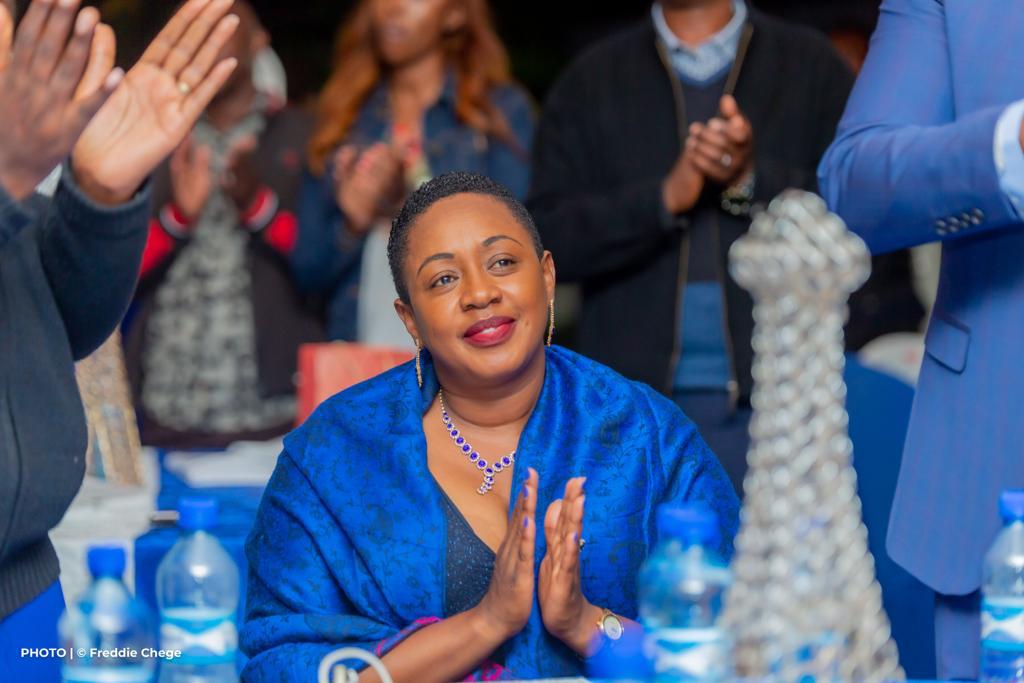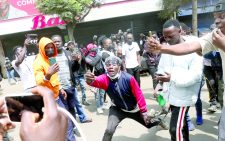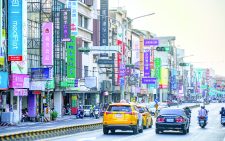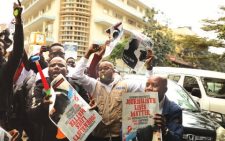Ngugi wa Thiong’o: Author who was a needle in State’s flesh
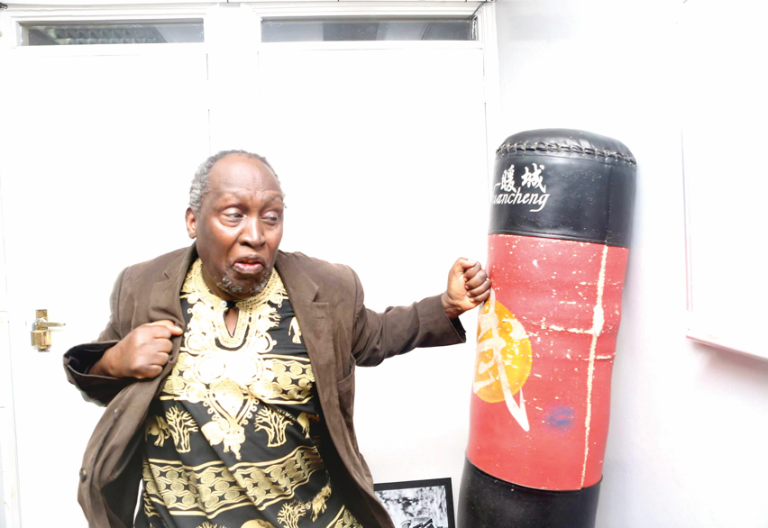
The relationship between “committed” authors and State actors has never been rosy; not in Russia during the days of Maxim Gorky, not in South Africa during the apartheid era that produced Alex La Guma, and certainly not in post-independence Kenya, which produced the radical Ngugi wa Thiong’o.
“Committed” authors are by definition creatives who use the power of their pens to defend or assert an ethical, ideological, political, social and sometimes religious worldview. They put their pens, not primarily to the service of art, but to a cause, such as justice. For Ngugi, that cause was fighting imperialism in its complex facets, including as personified by the “black bourgeoisie” that took over the colonial infrastructure and adopted it to benefit themselves economically at the expense of what he described as “the proletariat”.
This was the moral compass within which Ngugi situated his fiction, plays, poetry and essays. Although in his early works, such as The River Between, Weep Not Child, and the ground-breaking A Grain of Wheat (1967), he was critical of the colonial and post-colonial establishment, he achieved a new high when he penned his seminal novel, Petals of Blood (1977), a literary tour-de-force that launched him into the realm of canonical literary writers.
In these and other earlier works — including the relatively weak plays that he co-authored with colleagues like Ngugi wa Mirii and Micere Mugo — Ngugi set himself apart as a veritable thorn in the flesh of those who wielded political and religious power and who, by this virtue, turned into economic oppressors of the poor.
This positioning put him at loggerheads with both Presidents Jomo Kenyatta’s and Daniel arap Moi’s autocratic administrations. The first detained him without trial at the Kamiti Maximum Security Prison — when Kamiti was Kamiti — while the other forced him, and other public intellectuals of like mind, into self-exile.
These experiences led Ngugi to pen Shaitani Mutharaba-ini, which he later translated into English as The Devil on The Cross in 1980 and Detained: A Writer’s Prison Diary, the following year.
Again, the publication of these two books became another critical turning point in Ngugi’s literary trajectory. The ink in his literary pen appeared to have dried up but where it fell short, he compensated by writing polemical works, such as Decolonising the Mind, Homecoming, Writers in Politics and Moving the Centre.
In these essays, he expounded on his Marxist-Leninist thinking about the political economy and the role of the writer in re-orienting the moral compass of society by pricking the consciences of those who controlled the levers of political and economic power.
Ngugi saw, and rightly so, his role as a creative writer as being that of holding up a mirror for society to take a critical look at itself. Where those in power saw the warts reflected in the mirror, Ngugi was always quick to point out to them that he did not create the warts, he was only concerned with ensuring that the political bourgeoisie was aware of the warts. This, in part, is why he co-wrote I Will Marry When I Want, with Mirii, the book that rubbed the Jomo Kenyatta government up the wrong way. Its staging was banned and Ngugi was detained (for having banned books) while Mirii fled into exile in Zimbabwe.
Notably, where Ngugi needed to be didactic in prescribing what he believed to be the solution to the challenges bedevilling Kenya as a nation — and by extension Africa — he was not afraid to rush in where angels feared to tread. This is what made him a “committed” writer.
And as with all “committed” writers, he fell into the trap of sacrificing aesthetics at the altar of praxis. In plain English, he did not allow the beauty in the art of writing to stand in the way of the political message that he sought out to put across.
Ngugi will also be remembered for writing in Gikuyu, his mother tongue, at a time when it was not fashionable for African writers to do so. In so doing, however, he was walking in the steps of literary greats like Fyodor Dostoyevsky, who wrote in Russian, Franz Kafka (German), Gabriel Garcia Marquez (Spanish) at a time when the battle for linguistic dominance was raging across the globe and smaller languages were at risk of disappearing either due to a reduction in the number of native speakers or because they had not ossified their collective wisdom through the written word.
To that extent, therefore, Ngugi served as a literary vanguard against exploitative and imperialistic lingua francas, particularly English and the two cardinal sins of commission that it stood for; colonialism and capitalism.
This in my opinion explains, in a large part, why Ngugi, despite being worthy of the honour, was never awarded the Nobel Prize for Literature. And he was not alone. His comrade-in-arms, Chinua Achebe, who was also vocal in his criticism of colonialism and its variants, was
similarly denied the honour despite being easily the giant of African literature in English.
For many years, bookmakers skimmed millions of shillings from positioning Ngugi as a favourite to win the Nobel Prize, but every October, readers who put their money where their beliefs were, walked home empty-handed and with deferred dreams.
However, unlike Achebe, who was honoured at home and abroad, Ngugi has never been honoured at home. I have, in the past argued that all writers who have been awarded the Nobel Prize were first feted at home before the rest of the world bestowed various honours on them. Ngugi, unfortunately, was like the proverbial prophet who was never acknowledged by his own people. This, I have always asserted, is the second reason the Nobel evaded him despite being eminently worthy of the prize.
Polemics aside, I first learned about Ngugi from my mother and her friends as they analysed The Devil on the Cross in the 1980s. Although I was an avid reader, it had not occurred to me that books were written until I heard my mother argue that “the devil in The Devil” was a metaphor for Jomo Kenyatta. That was my “Aha moment”. It dawned on me that I, too, as a lover of stories, could become a creative writer. I have never looked back. However, I have often had to remind myself that although my journey began with an awakening triggered by Ngugi, I would never be him.
There were, thankfully, some moments of serendipity in our paths. For instance, a young Ngugi worked for Daily Nation as a neophyte — albeit for six months — while I too worked there years later. And one year after Oxford University Press East Africa published my novella, The Weaver of Dreams, in 2015, Harvill Secker (and subsequently East African Educational Publishers) issued Ngugi’s, Birth of a Dream Weaver.
As a young university student, I studied Ngugi under the Ngugi expert, Dr G.D. Kweya, and during semester breaks, I sometimes played competitive football at Ngenia High School, where Ngugi had been a student decades earlier. He and my father, Joseph Ng’ang’a, also served as board members of Ngugi’s other alma mater, Kinyogori High School in Ngarariga area, near Limuru town.
Born James Githuka Ngugi on January 5, 1938, in Kamiriithu, Kenya a walking distance from Limuru Town, Ngugi died in the US on Wednesday, May 28, aged 87.
“He lived a full life, fought a good fight,” his son Nducu wa Ngugi wrote in a message shared with members of the Kenya Publishers Association on the day of Ngugi’s demise. “As was his last wish, let’s celebrate his life and his work”.
-Mbugua Ng’ang’a is an award-winning author of among other books, ‘Different Colours’ and ‘Terrorists of the Aberdare’. He is also the Editor-in-Chief of The Nairobi Law Monthly and Nairobi Business Monthly. Mbugua@nairobilawmonthly.com
